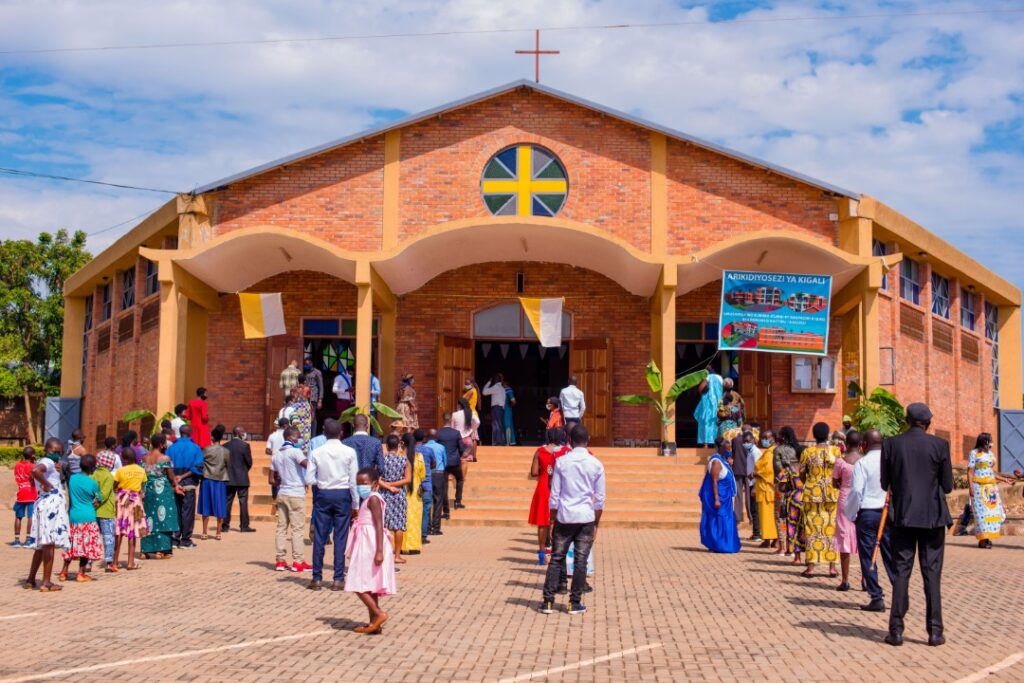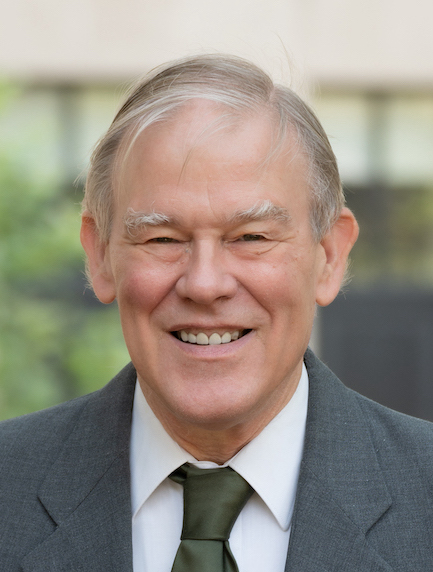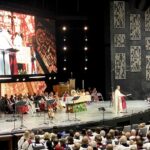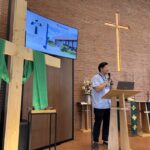The mass closure of thousands of churches in Rwanda attracted attention in 2018, when a new law regulating churches was introduced, and again this summer when mass closures happened again. While the autocratic government of President Paul Kagame presents these actions as impartial applications of the law in the interest of health and safety, it is evident that it is aimed the closure of poorer, independent (largely Pentecostal and start-up) churches, one of the last remaining areas of spontaneous words and activity beyond state control.
Kagame has been de-facto ruler of Rwanda since the genocide of the Tutsi people and moderate Hutu living in Rwanda in 1994, having led the Rwandan Patriotic Forces (RPF) that conquered the country and ended the genocide, and President of Rwanda since April 2000.
Open Doors Ministry’s very comprehensive report on Rwanda for 2024, covering many social and political indicators as well as religious indicators reports that:
“the government remains authoritarian and regards virtually any form of assembly and association as a potential threat. Government hostility against non-traditional Christian groups is particularly severe. State legislation and the regulation of society all aim to make sure that the government is in tight control of the country. Accordingly, the government suppresses freedom of association, assembly and religion, and wants to make sure that it is in a position to control the running and activities of all religious associations. As a result, the application process for licenses and the registration of new churches has been made very complicated. The government has placed stringent requirements on Christians (for instance, the need for pastors to have a university degree). Traditional churches face high levels of interference, for instance, when it comes to choosing leaders and the content of religious teaching. The government wants all churches in the country to agree and support the government. If they are found not to be acting in accordance with government policy, they can easily be labeled ‘revisionist.”
In addition, “it is not uncommon for church leaders to receive official warnings, hindering their freedom to lead their congregations … In certain regions, parents, particularly those adhering to the newer forms of Christianity, encounter significant impediments in shaping their children’s upbringing according to their religious beliefs.”
Unrealistic Standards for Churches
The shutdown of thousands of churches was justified in 2018 by a new law requiring essentially First World standards of the physical plants and even the organization of churches in Rwanda – standards that likely many parishes even in the traditional churches (e.g. Anglican and Roman Catholic) cannot meet. However, it is the many new Pentecostal churches who are mainly affected. Additional thousands of churches have been closed this year. Since it has been estimated that there were 15,000 churches in 2019 (although many unregistered churches may not have been counted), the closure of 7,700 this year should bring the remaining churches to around 7,300.
The larger policy justification the government advances for the church standards and closures is Vision 2050, a policy objective of the Kagame government which basically envisions turning Rwanda into a First World country by the year 2050. It appears to be a very secular, progressive, top-down, and “world we choose” vision, emphasizing “quality of life” as its objective. General goals (e.g., “universal access to affordable and decent housing,” “smart and green cities for sustainable growth,” and “equity (including gender), and inclusiveness”) show the strong influence of Western progressivism. Religious organizations must march to this tune, as was stressed by a government official, noted below. Obviously, a few large denominations with pliant leadership can be more easily controlled than many independent churches. Historic churches (Catholic and Anglican) tend to support the government’s actions against “new and smaller churches,” as Open Doors noted.
Specific (burdensome) requirements for churches in the 2018 law were discussed (optimistically) in a RwandaTV panel that was moderated by Eugene Anangwa of RwandaTV, and included Rwandan Governance Board Chief Executive Officer Dr. Usta Kaitesi, Anglican Archbishop Rev. Dr. Laurent Mbanda, and a Pentecostal pastor, Kabagambe Nziza.
The Rwandan Governance Board manages implementation of the 2018 law. The law applies to non-Christian houses of worship as well, and some mosques have been closed. Churches must register with the government, filing a statement of their doctrine with the government, disclose the minutes of the assembly that established the religious organization, disclose the source of their revenue, provide an annual action plan for the organization, and be led by clergy with university level theological education. Additionally, houses of worship (particularly affecting Pentecostal churches, but also mosques) must control the sound in their assemblies, which religious leaders describe as a requirement to be “sound-proof.” Other African countries (e.g., Kenya) are considering regulating religious organizations in similar way, as well.
Justifying the Closures
In justifying the shutdown, RGB Chief Executive officer Kaitesi said that regulators regulate, and questioned why religious organizations should not be regulated. She said that the RGB is simply implementing the law, as it has done since 2018. It acted again to close churches because they were given a five year grace period for their clergy to get theological education, which period expired in September 2023.
In the recent inspection of churches, Kaitesi also said that the RGB did require clergy to have the required theological education, and also found many new churches which were “illegal, actually.” Presumably they had not registered with the state providing the information noted above. But the idea of an illegal church does not comport well with religious liberty. Indeed, it contradicts religious liberty. Kaitesi also said the RGB found “noise pollution” coming from churches.
Archbishop Mbanda was generally supportive of the government’s policy. He said that the “churches knew what to do.” Indeed, Mbanda included himself among those at fault (along with other church leaders). He said that when he became archbishop in 2018, he started a theological school, because it was becoming too expensive to send theological students to other countries. It should be obvious, however, that requiring university level theological education, parking lots, and “soundproof” buildings is beyond what start-up Pentecostal churches, or churches in rural areas can afford.
When the deadline for theological education came in September 2023, Mbanda said he had the Anglican Church of Rwanda “mapped” to see which parishes needed a clergyman with a theological degree. The archbishop also said he saw a problem with “false teaching.” Anangwa referred to the “prosperity gospel” as the false teaching. But again, governments respecting true religious freedom do not attempt to regulate church teaching, even if it might seem bizarre or even dangerous to some persons.
Anangwa asked Pastor Nziza about “the pros and cons” of closing thousands of churches. Nziza said that he was a “casualty” of the government’s policy. He joined his current church, New Life Church, “when our church was closed.” He said that he did not disagree with the government’s effort to regulate churches but had “a problem with the implementation side of it.” He noted that the government’s requirements include a parking lot, while many rural congregants walk to church. Also, such rural churches do not need to be “sound-proof,” he claimed, which was one of the state’s requirements. Further, many of the missionaries who established the Christian churches in Rwanda taught that no formal training was necessary to preach. Instead, preaching was “a calling.”
Kaitesi said that churches are not required to be “sound-proof,” but must control “noise pollution.” This involves verifying that churches actually are not making a sound above state requirements. She also indicated that control of sound applied both inside and outside of the house of worship. Parking lots are needed to accommodate emergency vehicles if needed (why this is needed for churches if there is no parking in remote areas for anything else was not explained). She maintained that “we are thinking about the security of the people that are at the prayer house.”
Pastor Nziza objected to calling the worship of God in a church “noise pollution.” He also said that government inspectors sometimes do not know what the standards are that they are enforcing. Kaitesi said the pollution was not what was said at worship (which seemed at variance with some of her other statements), but the level of sound of the expressions of worship. Unexplained as well was why statements of faith have to be submitted to the government, if, as she claimed, the state does not care what the religious doctrines are.
Anangwa asked Archbishop Mbanda whether people can be accommodated in their desire to pray in remote places, as Jesus did. The archbishop said that we should not try to live in the past, but in the present. He said it might be “dangerous” for people to pray in caves (where it appears there has been worship) or on a hill. Why corporate prayer at remote places could be “dangerous” was not much explained, however.
Kaitesi also said that local church leaders were repeatedly reminded of the government standards for houses of worship in the period before the closures. She insisted that while state representatives and inspectors had often explained the standards, they were still non-negotiable. She emphasized “the rule of law.” While no government should tolerate lawlessness, in view of her subsequent references to self-regulation according to legal standards and “toxic teachings” people may be exposed to at church, the state appears to be moving toward control of the content of religion in Rwanda.
A questioner asked if RGB inspectors have relevant degrees in theology so that they might understand what should and should not be taught in churches. Kaitesi denied that the government is saying what may or may not be taught in churches. But she also said that churches may not in their teaching “compromise national unity,” or “compromise public order.” But these are vague standards through which censorship can occur. Indeed, about 2018 in Rwanda, one religious broadcaster was shut down for broadcasting a sermon based on Biblical references that the government deemed “hate speech” against women. Disturbingly, Kaitesi said that the government’s objective was to enable clergy to “self-regulate” and manage “toxic teachings.” Further, she said that the state’s view of the church is that churches should conform to the Vision 2050 goals set by the Rwandan government, which involves attaining life at a higher standard of living. This could be interpreted as something like the “Sinicization” campaign in China (making religious groups conform to Chinese characteristics, which are set by the government). Pastor Nziza maintained that much of the standards are being formulated “outside of the church’s knowledge.” But Kaitesi maintained that churches should fulfill both the mission to take people to Vision 2050, and then take them to heaven.
Kaitesi’s comments on regulating religious organizations are worrisome. Law enforcement must be able to act if there is criminal behavior on the part of religious organizations, but the state should not concern itself with how a religious organization should properly function as a distinctly religious organization.
Yet setting standards for the functioning of a religious organization as such seems to be the government’s intention in Rwanda. Under the First Amendment in the U.S. Constitution (and particularly with the 2012 Hosanna Tabor decision) theological training for clergy cannot be a state requirement for religious organizations in the United States. That the thousands of preachers in Rwanda could all receive university level education is simply not possible. Government registration of churches (requiring statements of faith, master plans for future activities, etc.), and inspection of churches does not comport well with religious liberty. Indeed major religions (Christianity and Islam) began as small groups responding to what was believed to be supernatural visitation, as with Pentecostal churches today. Rwanda’s government policy seems to be the beginning of state control of churches.
Future Direction of State Regulation
This is of course impossible to predict, but without some political change it does not appear likely that there will be any greater religious freedom in Rwanda. Religion News Service was surely correct in its assessment that the government’s immediate aim is to stop and turn back the unregulated “proliferation of churches.”
But President Kagame also seems unfriendly toward religion, at least religion that he doesn’t like, which is not pliant to his wishes. As RNS noted, he last year accused Catholic pilgrims in the country of worshipping poverty and threatened to arrest those who visited pilgrimage sites. He thought young people were spending too much time praying and not enough working to end poverty. He seems to believe that there are too many churches. Commenting on the number of churches in the capital city, Kigali, he said “Seven hundred churches in Kigali? Are these boreholes that give people water? … I don’t think we have as many boreholes. Do we even have as many factories? But 700 churches, which you even had to close? This has been a mess!”
The general direction of Kagame’s words and policy are that religion is an impediment to development, and needs to be controlled. There is also the aspect of authoritarianism, which in any society is threatened by independent religious doctrine and practice. As noted in the link above, David Himbara, a former Kagame advisor now in Canada, has said that churches were “the last open space” in an otherwise tightly controlled society. “The localized community of churches offered a slight space for daring to imagine and talk about change,” he said. Independent start-up churches attracting the poor are especially a threat from this perspective. Himbara maintained that “in Kagame’s Rwanda that is full of poverty, division and oppression, it makes perfect sense that indeed thousands of people flock to churches without hesitation.”
INcontext, a South Africa-based mission focused news service, has indicated that meeting online is an option for at least some churches in Rwanda, including for the church of a respondent in that country. But “this is not the way church should be done because fellowship happens best in person, and communities are built and thrive on face-to-face interactions,” the respondent said. Additionally, “most churches in Rwanda are one-pastor-lead. The stipulation of having theological training at university level is greatly affecting us. My guess is that more than 90% of church leaders here do not have university level theology training. Churches are also required to have soundproof systems, but noise from bars and entertainment venues is not restricted. All churches are required to have parking space, even if there is little ground around the church, or the church is in a poorer community where everybody walks to church. The same does not apply to hospitals and clinics for instance. We feel that the churches are treated unfairly.”
Conclusion
American Christians are familiar with this after the coronavirus shutdown. Churches were closed or restricted to a few people at the same time that abortion facilities and casinos were open. The churches were shut down on a “health and safety” justification by governments that clearly saw physical needs as more important than spiritual, as President Kagame apparently does, and also that like him, wanted to control the narrative in society. The evidence, despite denials, of attempting to control religious teaching is present in the references to “false teaching” and “toxic teaching” in connection with the church closures. If the government in Rwanda continues development of the country along secular, progressive lines, more censorship can be expected of what is deemed “hate speech” against particular religious groups or on sexual issues.
The advance of Western secularism into the non-Western world is well underway. Latin American elites, if not their peoples, are committed to gender ideology over classical freedoms, as shown by the situation in Mexico and elsewhere. Africa also not is not immune to this. As we pray for the end to the often violent persecution in the non-Western world, we should remember to pray that these nations will be spared the worldly and hedonistic influence and doctrines of the West which are inimical to Biblical faith, and which in their full development suppress Biblical faith and practice. And pray as well that Rwandan Christians would be faithful and again have the freedom to assemble and worship and have fellowship as they understand Scripture to teach.






Comment by David on September 15, 2024 at 8:00 am
Many places in the US closed down churches, theaters, schools, etc. during the 1918 influenza epidemic. Those that did not, suffered more deaths.
In the more recent Covid event, there were early cases where church services and choir practices were “super spreader” events with closely seated persons singing. Prohibitions on public assembly were not based on religious doctrines. Like it or not, abortion facilities are medical facilities, which were not closed in the pandemic. While casinos are not the most necessary things in society, people in them are more spread out than in theater-like situations.
The situation in the country in question is clearly that of a government seeking totalitarianism.
Comment by George on September 15, 2024 at 6:02 pm
Rwanda isn’t the only nation in history to use the government control of churches as a way to help control its citizens. Won’t be the last either. Calling an abortion clinic a medical facility is like calling Josef Mengele’s office a medical facility. Someone always dies. I really doubt you have been in any of the casinos that I have. There is not much separation of patrons at the crap tables, black jack tables, slot machine salons, and don’t forget the all you can eat buffet lines. But, of course they do bring in a lot more money for the political elites than do the churches.
Comment by MikeB on September 16, 2024 at 1:47 pm
David,
You are going to have to show your work on the 1918 death rate vs religious gathering bans.
I can’t find anything that supports your statements.
Where are the bans, dates of bans and death rates?
Comment by David on September 16, 2024 at 3:44 pm
A city that had to reverse course in 1918 was Philadelphia. The pandemic was ignored despite what was happening in other cities. A major parade was held and shortly thereafter, there were many cases. Restrictions belatedly followed.
https://www.pbs.org/wgbh/americanexperience/features/influenza-philadelphia/
Comment by MikeB on September 16, 2024 at 5:26 pm
David,
That information is extremely lacking to make such a broad claim as “Many places in the US closed down churches, theaters, schools, etc. during the 1918 influenza epidemic. Those that did not, suffered more deaths. ”
During Covid, FL had a lower death rate than NY, TN than KY, NM Higher than TX or AZ etc… States that kept churches open vs those that tried to close them down.
I don’t think you have any basis to make such a claim.
Comment by Rick Plasterer on September 16, 2024 at 7:00 pm
David,
I might add that as I responded to your comment about an institutional religious liberty article on January 26, 2022, the Becket Fund for Religious Liberty was involved in litigation regarding the closure and reopening of houses of worship in connection with the coronavirus lockdown. Its President and CEO, Mark Rienzi, observed that governments could not prove in court that churches were “more dangerous than many other allowed activities.” Further, New York Governor “Cuomo’s own data suggested that attending houses of worship was much safer than other activities. So much for following the science — it turns out the science had been asked to follow the politics instead.”
See below:
https://www.realclearpolitics.com/articles/2021/04/01/covids_religious_liberty_lesson_for_courts_145511.html
If the above link does not work, type in “COVID’s Religious Liberty Lesson for Courts”
Rick
Comment by MikeB on September 20, 2024 at 10:55 am
Rick,
Appreciate your willingness to engage, beyond just agreeing with you, you take time as an author to engage with those commenting.
That is commendable.